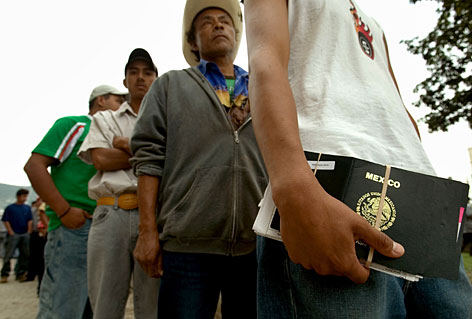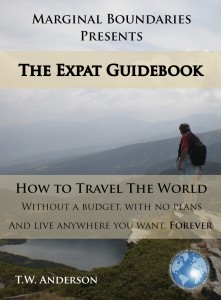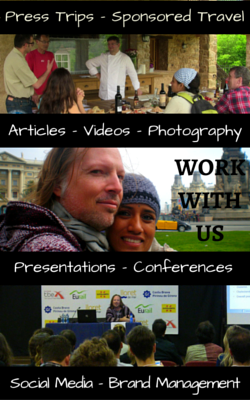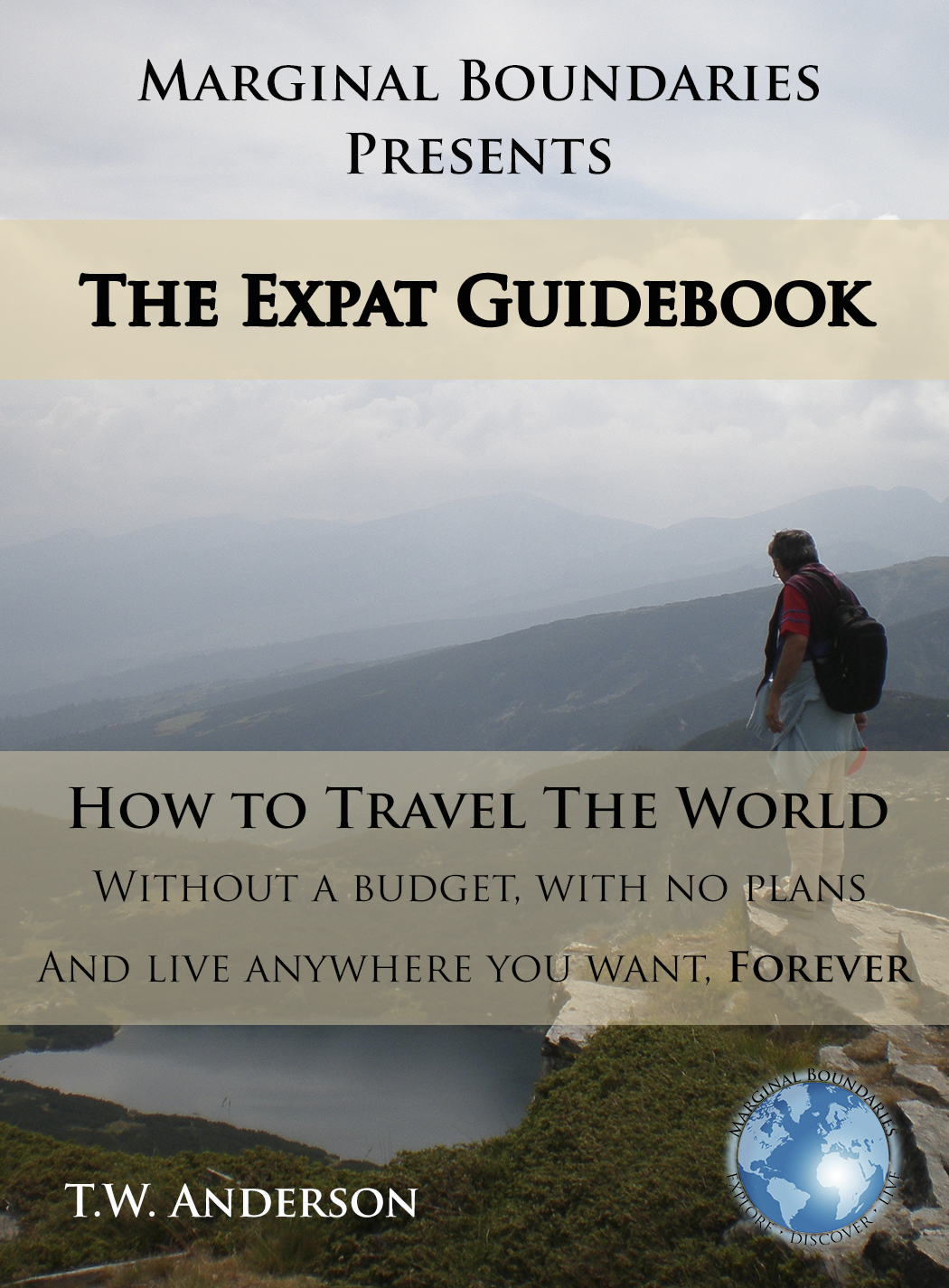
While those of us who are traveling for a living often speak the language of the countries we are visiting, it’s not always a guarantee that where you end up will be somewhere where you can actually communicate fluently. And although you might only be on the ground a week or two, or maybe even as long as a few months on a passport stay, once you start to get into long-term immersion travel there are a variety of bureaucratic processes that can bog you down if you don’t speak the local lingo. Or, even in the case of those of us who speak the language, sometimes you just don’t want to be bothered with the hassle of doing paperwork when you can find someone else to do it for you.
Things like getting your residency paperwork filed with the local immigration office. Or getting papers notarized and translated. Or dealing with lawyers for a property purchase/sale. Every country does things differently, and as most of us have found out over the years, sometimes the only downside to living in a developing country is the bureaucracy.
Such as looking at the immigration website for your country and downloading the required papers, filling them out and then going to the local immigration office and talking to the individual at the information desk only to find out that the papers on the website aren’t up to date and you need to fill out these papers instead and supply copies of these two pages of your passport along with a translated copy of this document and copies of these bank statements.
So you take the next day to follow the instructions, come back to the office only to find another employee working…who tells you that you didn’t actually need that copy there but actually this copy here and you need two more copies of that document and this one has to be notarized but only after it has been translated and you have to be back between the hours of two and four in the afternoon only there’s a line halfway around the block to try and get it when you return so you say screw it and come back the next day and submit all your paperwork, finally, and they tell you to check the website in two weeks for an update but when you do nothing updates and you wait and you wait and five weeks later you finally decide to go to the office to find out what’s up only to find out that your paperwork has been there the entire time but no one ever entered it into the website to let you know to come pick it up, but before you can pick it up they have changed the laws and now you need these other documents filled out and notarized and…
Having done my own visa paperwork in three countries now (Bulgaria, Colombia and Mexico), I can tell you from first-hand experience that the hassle — even if it’s only once a year — can be enough to drive a person mad. In Bulgaria, for example, I went through the residency visa process three times, and every year it was completely different…and I had to spend three to five days jumping through hoops that would change on a daily basis depending on who was working. It’s literally the only thing I dislike about living in developing countries: the lack of a streamlined filing system.
Which is where local fixers come into play.
Taking One For The Team
Think of a local fixer as a temporary personal assistant. They are going to do all the little things that you don’t want to be hassled with. Like running around to the notary and the translator and the lawyer and the copy shop and the immigration office for files and copies and forms. They speak the local language and can thus communicate on a far greater level than yourself (even if you do happen to speak fluently; they are native speakers after all), but there’s something else that a local fixer has which is greater than their communication skills: Local know-how.
They know the way things work. They know who to talk to, how to grease the wheels, how to talk to the right people to get the desired result. They have built up connections with lawyers, immigration officials, bankers, notaries and beyond, which gives them a streamlined way of doing things that just isn’t available to you, even if you (like myself) happen to live in a city and speak the language reasonably well. They are often friends with the people working behind the counter at the offices and have built up a rapport with them over the years, which means your paperwork gets pushed to the front of the line rather than lingering away, lost in some bin.
But most importantly, you don’t have to waste your time doing the little things. Instead, you simply show up a couple of times, put your signature on some paperwork, pay the fixer his fee and go on about your business. Time = money, after all, and by using your time to be more productive and work on your income, you can pay a local fixer their minimal fee and let them handle the paperwork for you.
Above and Beyond
Local fixers are also often the difference between living as an expat in a specific city and being denied the right to live there and forced to leave if you have overstayed your passport stay or your visa. For the most part they are people working on the right side of the law helping to “fix” bureaucratic issues for non-native speakers of the host country language. They either work on commission, tips or referral fees (such as in the case of fixers for local immigration lawyers who get a kickback from the lawyer after they bring in a new client, who is you, the digital nomad and/or expat who needs help).
Contrary to what some people might think, fixers are not working illegally…for the most part. They do exist on both sides of the fence. However, if you do things by the book you will be working with the legal ones, the ones who are simply helping you navigate the minefield that is dealing with your visa in Japanese when you only speak English, for example.
Fixers can also take care of some shadier types of activities (disclaimer: I do not personally recommend these methods, merely mention them for your reading), such as working with a legitimate fixer to help you grease the local wheels with bribes and tips. This involves things such as paying off local officials so you don’t have to leave a country while your visa is processing or your status is changing (such as in Bulgaria). Or it could involve overstaying your visa while in a country like Russia and then having a local fixer bribe the local officials and help you navigate the loopholes to get your visa renewed and take care of your accidental hiccup.
There’s a lot of different ways fixers can help you above and beyond just visa issues. They are also extremely common in the journalism industry, as well as the travel documentary industry, helping people nail down their film and gear permits as well as access to press passes and the like. You can read more about them and how to utilize them in your travels within The Expat Guidebook itself, but in the meantime you can watch our YouTube video on the subject as well.
This is an expanded version of a post originally written for The Expat Guidebook blog.
Don’t forget to sign up for our free newsletter for several-times-a-week, your-eyes-only travel and entrepreneur tips, plus receive a complimentary copy of our 85-page starter book on location independence and living abroad, 30 Ways in 30 Days.








Will – Local fixers are the way to go. If I ever make it back to Bulgaria I”ll use one for sure next time; three years of doing immigration on my own was enough to put me off it forever.
Tim,
Great idea – I’ve been running into some challenges with the cost of VISAs and knowing which ones are available.
AFTER arriving I was able to get some tips from some locals that dramatically reduces the cost of VISAs.
I think I’m going to look for a fixer soon!
Will